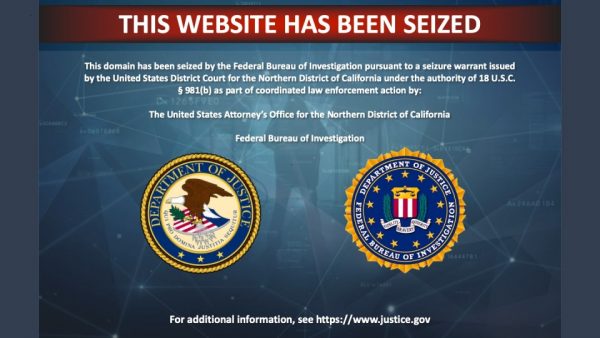The Strange Demise of The American Herald Tribune
Nov 11 2020 / 1:56 pmAnother independent news source is suppressed

Many observers would agree that the biggest loser in the recent U.S. presidential election was not Donald Trump, it was the media. The news that was presented to the American public amounted to a tsunami of negative reporting on Donald Trump buttressed by opinion polls that turned out to be poorly executed and wrong by a huge margin. Some might argue that Trump got what he deserved as he was a bad candidate and a bad man, but the unwillingness of the media to pursue stories detrimental to Joe Biden, particularly the corruption surrounding son Hunter, demonstrated a reckless disregard for admittedly unpleasant facts that might have changed some votes.
As an honest media is essential to the proper functioning of a democracy the issue of the politicization of the Fourth Estate is perhaps more serious than who eventually wound up being elected. The degradation of the traditional media, exemplified by the shameful reporting on the Russiagate fiction, has unfortunately come at a time when the new media, i.e. the “internet” is also undergoing transformation. Though some Americans continue to believe that when they go “online” they will get a free flow of useful and factual information that will guide them in making decisions or coming to conclusions about the state of the world, they are increasingly finding only spin or misdirection.
The conceit that the internet would bring with it alternative viewpoints challenging the status quo might have been true to an extent twenty years ago, but the growth and consolidation of corporate information management firms has instead limited access to material that it does not approve of, thereby successfully shaping the political and economic environment to conform with their own interests, and, increasingly those of the federal government. Facebook, Google and other news and social networking sites now all have advisory panels that are authorized to ban content and limit access by members and threats from Washington about regulating the companies and their offerings keep everyone toeing the line.
The United States government, riding a wave of Donald Trump inspired complaints about fake news, has itself been increasingly engaged in suppressing viewpoints that it objects to. The first major attack on foreign media operating in the United States came in 2017, when Russian government news sites Russia Today (RT America) and Sputnik were compelled to register under the Foreign Agents Registration Act of 1938. U.S. intelligence agencies had stated in a January report that the stations, which broadcasts on cable and over radio in the United States, are part of “Russia’s state-run propaganda machine” and that they had contributed to the Kremlin’s campaign to interfere in the 2016 presidential. That was of course untrue. Based on the report, the Department of Justice compelled RT America and Sputnik to register under FARA, which inter alia requires the disclosure of financial information.
The United States has moved to criminalize what it considers propaganda by foreign adversaries through its 2017 creation of the FBI’s Foreign Influence Task Force (FTIF) in the bureau’s Counterintelligence Division. The Justice Department claim that both the Russian sites were agents of the Kremlin might appear to be fair enough, but it was noted at the time that many other government-supported foreign news services operate freely in the U.S. without having to declare themselves “agents” and the U.S. itself openly operates propaganda sites like Radio Free Europe overseas without any hindrance.
Since that time, Washington and the media have also been beating the familiar drum that foreigners are interfering in American politics, to include Russia, the Chinese, and the Iranians. In August a 77 page report produced by the State Department’s Global Engagement Center (GEC) on Russian internet based news and opinion sources was released. It claimed that the Russians were guilty of spreading disinformation and propaganda on behalf of the Kremlin. Its full title read “Understanding Russia’s Disinformation and Propaganda Ecosystem” and it included a lead paragraph asserting that “Russia’s disinformation and propaganda ecosystem is the collection of official, proxy, and unattributed communication channels and platforms that Russia uses to create and amplify false narratives.”
Perhaps not surprisingly, The New York Times is hot on the trail of Russian malfeasance, describing the report and its conclusions in a lengthy article “State Dept. Traces Russian Disinformation Links” that appeared on August 5th. The Times described how the government report identified a number of online sites that it claims are actively involved in the “disinformation” effort. The Times article focuses on one site in particular that this author writes for, describing how “The report states that the Strategic Culture Foundation [website] is directed by Russia’s foreign intelligence service, the S.V.R., and stands as ‘a prime example of longstanding Russian tactics to conceal direct state involvement in disinformation and propaganda outlets.’ The organization publishes a wide variety of fringe voices and conspiracy theories in English, while trying to obscure its Russian government sponsorship.” It also quotes Lea Gabrielle, the GEC Director, who explained that “The Kremlin bears direct responsibility for cultivating these tactics and platforms as part of its approach of using information and disinformation as a weapon.”
Russia has, of course, been falsely accused of supporting the election of Donald Trump in 2016 and the existence of alternative news sites funded wholly or in part by a foreign government is not ipso facto an act of war or even particularly aggressive. Also, the claim that the Strategic Culture Foundation was and presumable still is a disinformation mechanism is overwrought. Yes, the site is located in Moscow and it may have some government support but it features numerous American and European contributors in addition to Russians. Its content is generally speaking antiwar and often critical of U.S. foreign policy but the contributors include conservatives, libertarians and progressives who write on all kinds of subjects.

